poverty

In 2023, over 107,000 Americans died from overdoses, with fentanyl responsible for more than 75,000 of these deaths—a staggering toll almost double that of car accidents or gun homicides. Fentanyl is increasingly mixed with meth and cocaine, spreading its lethal reach beyond heroin users. Journalist Ben Westhoff, author of Fentanyl, Inc., joins us to explore the crisis and his work advising government leaders on combating this unprecedented epidemic.

Shermer and Henderson discuss: hindsight bias • genes, environment, luck, contingency • foster care • incarceration rates • marriage, divorce, childhood outcomes • poverty, welfare programs, and social safety nets • the young male syndrome • alcohol, drugs, depression • luxury beliefs of educated elites • wealthy but unstable homes vs. low-income but stable homes • inequality • Henderon’s experience in the military, at Yale and Cambridge • the Warrior-Scholar Project.
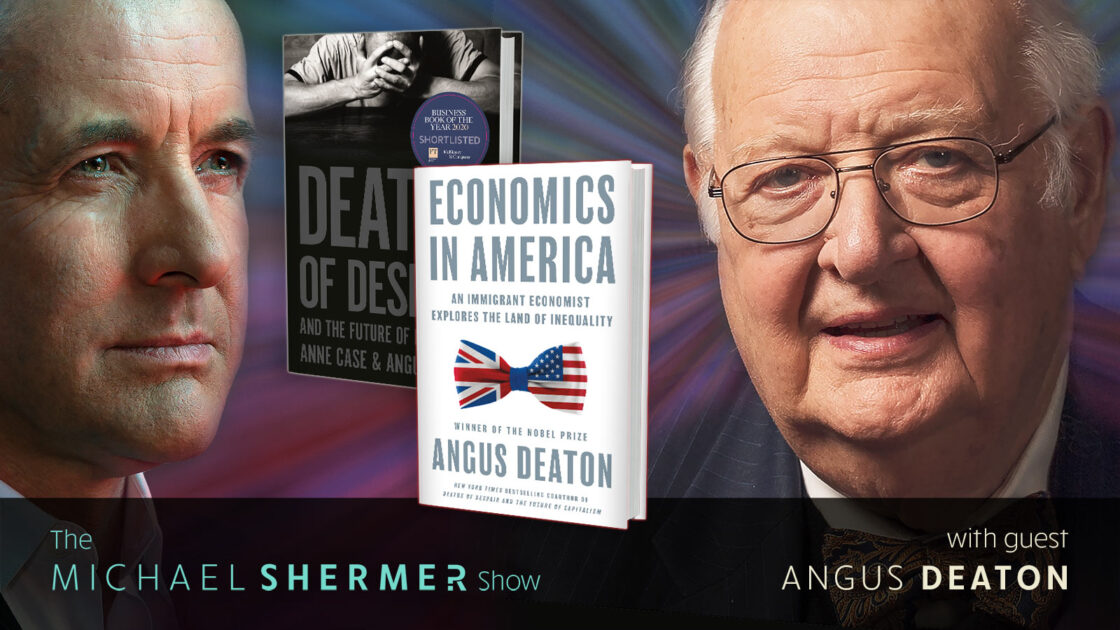
Shermer and Deaton discuss: the science of science is economics • winning a Nobel Prize • what economists do, and how they determine causality • Ludwig von Mises, Friedrich Hayek, Milton Friedman, Ayn Rand • why a college education matters • meritocracy and “Just World” theory • minimum wage • healthcare • poverty • inequality • opioid crisis, alcoholism, suicide • inflation and interest rates • modern monetary theory • think tanks.
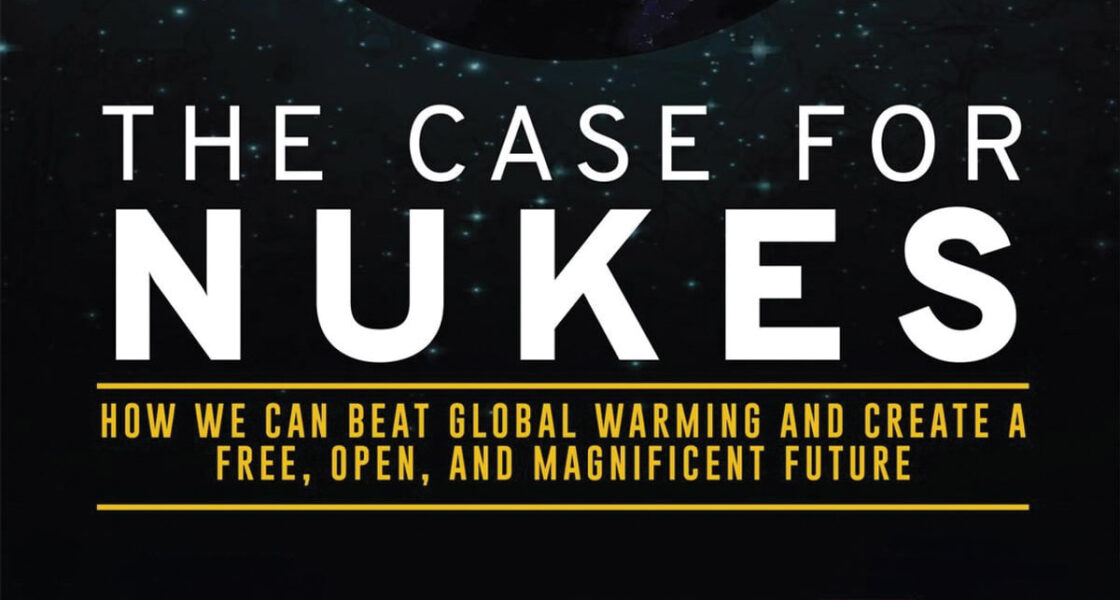
The world faces two energy crises: (1) too much, because we are changing the Earth’s climate and chemistry and so inviting global catastrophe; and (2) too little, because the bulk of humanity still lives in poverty, without enough for a decent standard of living. The answer to both is to go nuclear. Upon examination, the arguments made against nuclear energy, including: emissions, waste disposal, accidents, and proliferation are shown to be exaggerated, unfounded, or soluble using even currently available technology.
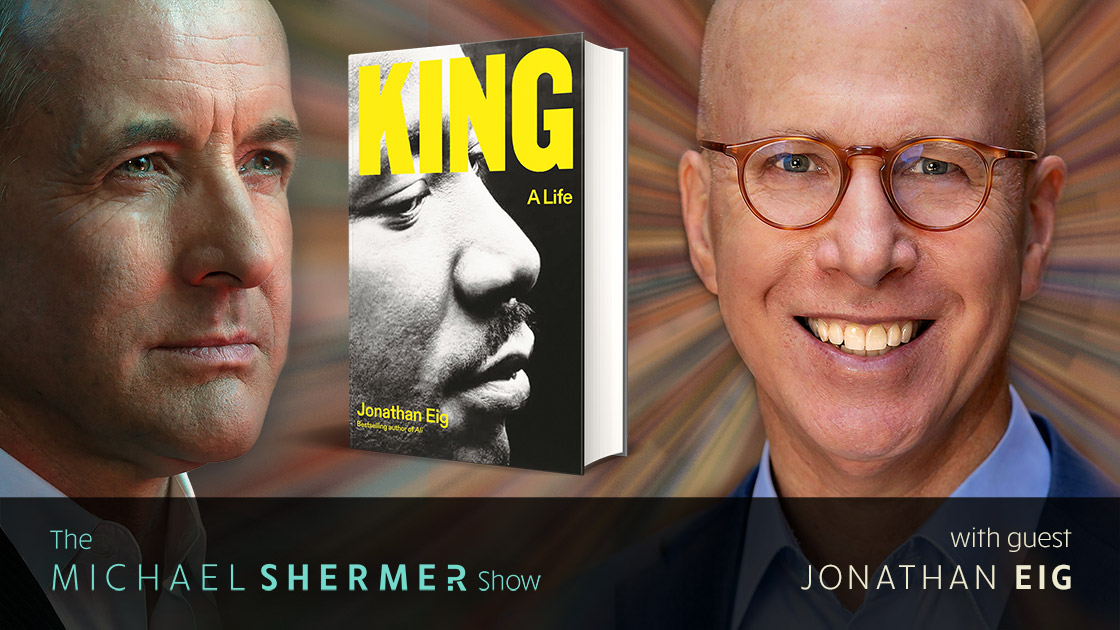
Shermer and Eig discuss: how to write biography • the history of the King family going back to slavery, Jim Crow, etc. • the influence of King Sr. on Martin’s intellectual and emotional development and the Ebenezer Baptist Church • King’s early experience with racism in the south • King’s religious beliefs and the influence of his faith on his civil rights activism • the influence of Gandhi and Reinhold Niebuhr on King’s strategic activism and deep belief in nonviolence…
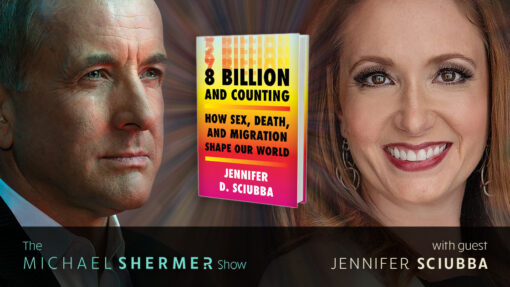
Michael Shermer speaks with political demographer, former demographics consultant to the United States Department of Defense, and author of The Future Faces of War, Jennifer Sciubba, about her new 8 Billion and Counting.
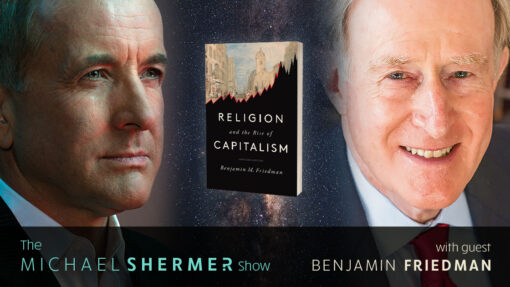
In episode 162 of The Michael Shermer Show, Michael speaks with one of the nation’s preeminent experts on economic policy, Benjamin Friedman, about his new book Religion and the Rise of Capitalism — a major reassessment of the foundations of modern economic thinking that explores the profound influence of an until-now unrecognized force — religion.
In episode 162 of The Michael Shermer Show, Michael speaks with one of the nation’s preeminent experts on economic policy, Benjamin Friedman, about his new book Religion and the Rise of Capitalism — a major reassessment of the foundations of modern economic thinking that explores the profound influence of an until-now unrecognized force — religion. PLUS: The Skeptic Research Center asks “Why Are People Misinformed About Fatal Police Shootings?” and Michael Shermer review Science and the Good: The Tragic Quest…
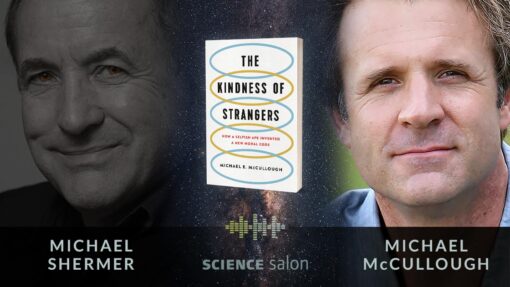
In this sweeping psychological history of human goodness — from the foundations of evolution to the modern political and social challenges humanity is now facing — psychologist Michael McCullough answers a fundamental question: How did humans, a species of self-centered apes, come to care about others?
In Science Salon podcast # 133, Michael Shermer speaks with Michael E. McCullough about his new book: The Kindness of Strangers: How a Selfish Ape Invented a New Moral Code.
















